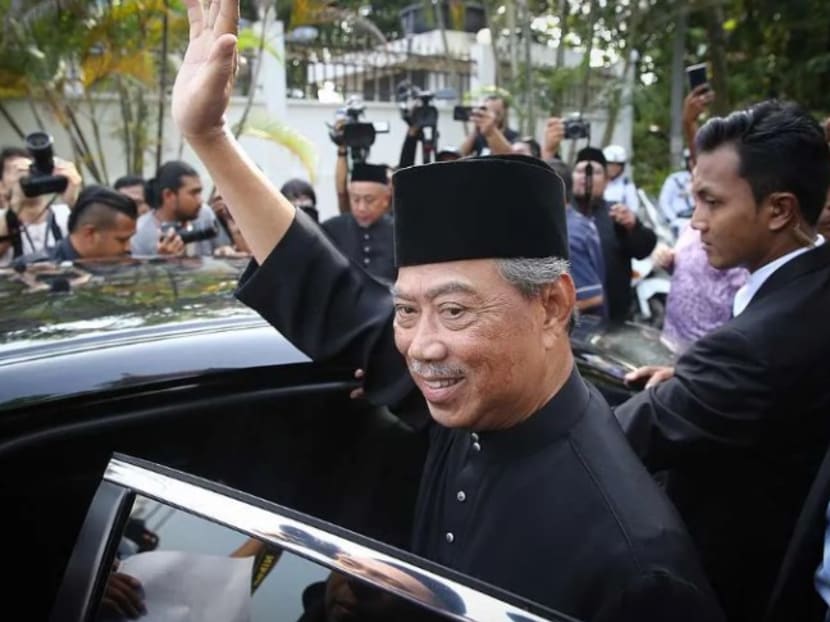Without law against party hopping, Malaysians should not be surprised by politicians horse-trading and switching sides
Many would scoff and recoil at how politicians of coalition governments defect and engage in horse-trading to form new ruling blocs, presumably in the pursuit of political expediency over public interests.

Malaysian PM Muhyiddin Yassin waves before heading for the Istana Negara in Kuala Lumpur to be sworn in on March 1, 2020.
Many would scoff and recoil at how politicians of coalition governments defect and engage in horse-trading to form new ruling blocs, presumably in the pursuit of political expediency over public interests.
Many may also claim that governments formed as a result of such jockeying is illegitimate for it may return a government that was voted out in the first place.
Thomas Jefferson once said that the people deserve the government they elect. I would add, the people deserve the laws their government enacts.
The electorate should be aware that when they vote in a government, they must accept not just the policies it implements but also the laws that it enacts.
If the elected government allows for party switching in the Constitution, the electorate must accept the prospect of a so-called back-door government coming to power.
Granted, it may be hard for any voter to predict the actions of their governments, much less, the laws their governments would enact.
But predicting political postures and their corresponding laws may not entirely be a Herculean task.
Whilst no one in 2018, the year Pakatan Harapan unseated the Barisan National from power in Malaysia, could ever imagine what would happen in the country this past week, talk of enacting anti-hopping laws had long surfaced before that.
In 2010, the late Karpal Singh of the Democratic Action Party renewed calls for anti-hopping laws. But his critics argued that such laws were unconstitutional for it contravenes Article 10 of the Malaysian Constitution that allows for freedom of association.
That Singh’s proposal did not gain much traction amongst Malaysian voters then and now suggests that Malaysian voters did not regard it to be of national importance.
So, the recent developments in Malaysian politics shouldn’t come as a surprise to most Malaysian voters, particularly the older ones.
Despite the arguments against anti-hopping laws, I am relieved that, as a Singapore citizen, our Constitution’s Article 46(2)(b) stipulates that lawmakers will lose their seats if they resign or are expelled from the parties that they were elected under.
Singaporeans will be heading to the polls no later than April 2021. From now till then, if any political parties think that party switching should be allowed, let them bring it to the fore of political discourse both before and during the hustings.
And may the clarion call amongst those who abhor political switching reverberate through the pulse of the political class.
Have views on this issue or a news topic you care about? Send your letter to voices [at] mediacorp.com.sg with your full name, address and phone number.






